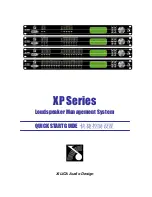
INSTALLATION EQUIPMENT
• An Electric Drill With Bits
• Allen / Hex Key / Wrench Set
• Philips Head And Standard Screw Drivers
• Wire Strippers
• Crimping Tool
• Vom (Electronic Volt Ohm Meter)
• Heat Shrink Tubing And Heat Gun
• Soldering Iron
• Electronic (Rosen Not Acid Core) solder
EQUIPO DE INSTALACIÓN
• Un taladro eléctrico con bocas
• Allen / Llave hexagonal / Juego de llaves
• Destornilladores estándar Phillips
• Pelacables
• Herramienta de presión
• Vom (voltímetro electrónico)
• Tubo termo retráctil y pistola de calor
• Soldador
• Soldadura electrónica (núcleo de ácido rosen)
2
2. For safety, disconnect the negative
battery terminal from the battery prior to
beginning the installation.
3. For easier assembly, we suggest you have all
your tools in hand-Drill, Allen set, Crimp,
Soldering iron, Wire Strippers, Heat-shrink, etc.
4. Use high quality "Waterproof' connectors
for a reliable installation and to minimize
signal or power loss.
5. Think before you drill! Be careful not to cut
or drill into gas tank, fuel lines, brake or
hydraulic lines, vacuum lines or electrical
wiring when working on any vehicle. If
installing in a boat, make sure not cut or drill
through the main hull.
6. Never run wires near fuel lines or power (if
possible). Running the wires inside the hull
or car area provides the best protection.
7. Avoid running wires over or through sharp
edges. Use rubber or plastic grommets to
protect any wires routed through metal,
especially the tower.
8. Make sure that the mounting clamp or "L"
bracket are tight before leaving the dock.
9. Decide early what type of LED lighting you
want (if any) and wire accordingly (NOTE :if
you want "Dancing Light" look to the WiFi or
RF or BT remote controlled LED light box. The
easy way to have lighting ... YOUR way!)
2. Por seguridad, desconecte el terminal negativo
de la batería de la batería antes de empezar la
instalación.
3. Para facilitar el montaje, le sugerimos que tenga
todas sus herramientas a mano: taladro, juego de
llaves Allen, engarzadores, soldador, pelacables,
tubo termo retráctil, etc.
4. Utilice conectores "a prueba de agua" de alta
calidad para una instalación confiable y para
minimizar la pérdida de se
ñ
al o energía.
5. ¡Piense antes de taladrar! Tenga cuidado de no
cortar ni perforar tanques de gasolina, líneas de
combustible, líneas de frenos o hidráulicas, líneas
de vacío o cableado eléctrico cuando trabaje en
cualquier vehículo. Si se instala en un barco. Tenga
cuidado de no cortar ni perforar el casco principal.
6. Nunca coloque cables cerca de líneas de
combustible o de energía (si es posible). Pasar los
cables dentro del área del casco proporciona la
mejor protección.
7. Evite pasar cables sobre o a través de bordes
afilados. Utilice ojales de goma o plástico para
proteger los cables que atraviesan el metal,
especialmente la torre.
8. Asegúrese de que las abrazaderas de montaje
estén apretadas antes de abandonar la base.
9. Decida con anticipación qué tipo de iluminación
LED que desea usar (si aplica) y conéctelo según
corresponda. (NOTA: si desea "Luces Dinámicas",
utilice un módulo controlador de luz LED (LED-BTC).
La manera más fácil de tener iluminación a tu
manera!)
CF-X8PRO































